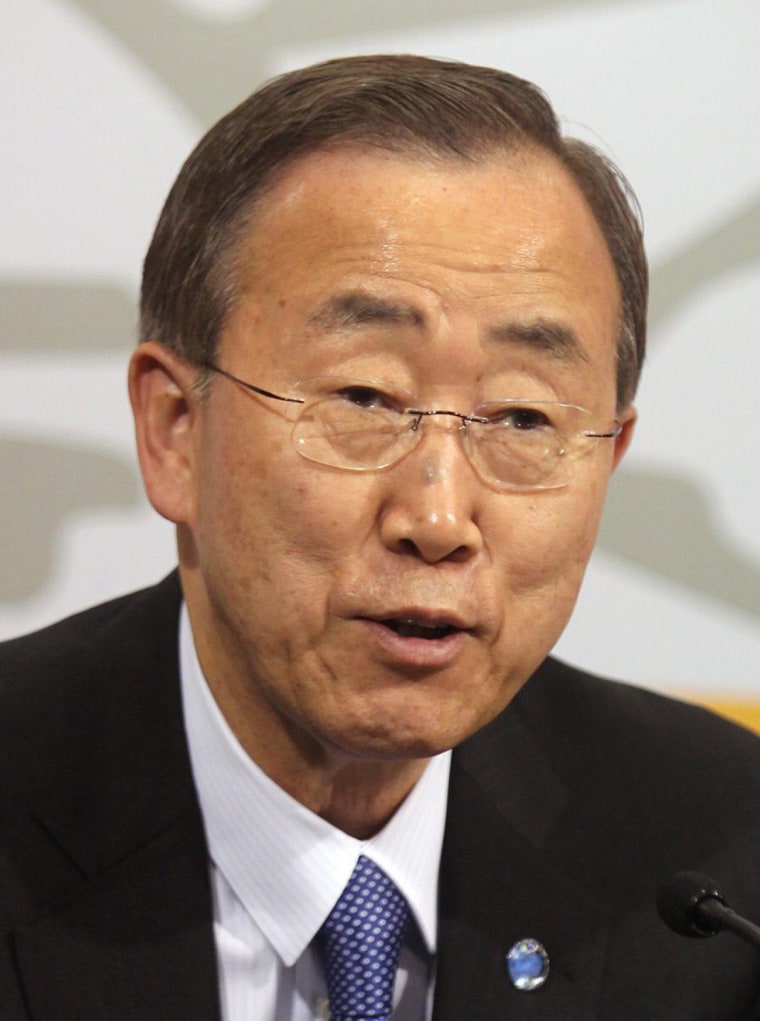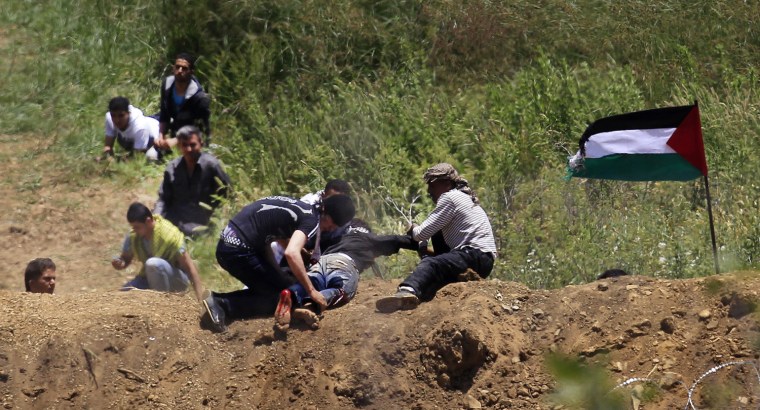Syrian security forces did nothing to prevent demonstrators from crossing into Israel in May or attempting to break through cease-fire lines on the Golan Heights in June, U.N. Secretary-General Ban Ki-moon said in a new report.
In the report to the U.N. Security Council obtained Wednesday by The Associated Press, Ban did not say who was behind the confrontations, but he called on the Israelis and Syrians "to show restraint and refrain from provocations."
The Syrian-Israeli border has been quiet for nearly 40 years, and Israel has accused the Syrian government of fomenting the two confrontations to draw attention from the three-month uprising in the country. Human rights activists say more than 1,400 Syrians have died, some 10,000 have been detained and thousands have been forced to flee their homes since the unrest began in February.

The secretary-general said the U.N. peacekeeping force on the Golan Heights has not been able to confirm reports that Israeli military fire killed four civilians and injured 40 others in the May 15 incident, and killed up to 23 people and wounded many more on June 5.
He said the two incidents "are of grave concern."
The May 15 unrest occurred on the anniversary of Israel's birth in 1948, a day the Palestinians refer to as the "nakba," or "catastrophe."
Ban said approximately 4,000 civilians, the vast majority Palestinian, gathered on the Syrian side of the border, opposite the Israeli village of Majdal Chams.
"The gathering was supervised by Syrian security forces and the Syrian authorities," he said.
In the early afternoon, Ban said, approximately 300 demonstrators suddenly moved toward the Israeli side "and despite the presence of the Syrian police, crossed the cease-fire line, through an unmarked mine field."
They broke through a fence that had been erected by the Israeli Defense Force, or IDF, which used tear gas and fired warning shots followed by direct fire to disperse the crowd, he said. "Approximately 100 of the protesters entered Majdal Chams and demonstrated in the town center," he said, adding that the majority later returned to the Syrian side.
The June 5 clashes marked the Arabs defeat in the 1967 Mideast war.
Ban said demonstrators, mostly young unarmed Palestinians, again massed in the same area on the Syrian side and also at the official crossing point for U.N. peacekeepers.
"Despite the presence of Syrian security forces, protesters attempted to breach the cease-fire line in both locations," he said. "The IDF used tear gas and smoke grenades to deter the protesters, and live fire to prevent them crossing the cease-fire line."
During the confrontation, Ban said, several anti-tank mines exploded due to a brush fire apparently started by tear gas or smoke grenade canisters near U.N. peacekeeping facilities at the crossing point resulting in casualties among protesters. He said Syrian, Israeli and U.N. fire squads extinguished the blaze.
The secretary-general recommended that the Security Council extend the mandate of more than 1,000-strong U.N. force, which expires June 30, for six months until Dec. 2011.
